 Business Valuation Procedure
Business Valuation Procedure
The Business Valuation Procedure describes how to regularly conduct business valuation assessments in order to monitor valuation and multipliers in relation to valuation and multiplier targets, provide general and industry specific economic information that affects the business; provide information for business strategic planning, and use worth in equity to raise capital. This procedure applies to Top Management and the Finance Department. (14 pages, 1093 words)
Business Valuation Responsibilities:
Top Management is responsible for setting valuation schedules, setting valuation targets, for reviewing valuation results in relation to targets, and for monitoring and adjusting business plans and strategies in order to reach valuation targets.
The CFO (Chief Financial Officer) is responsible for executing the valuation process, recording valuation plans, results, improvement plans, and for providing all needed information for the valuation process.
Business Valuation Definitions:
Valuation – The process of assessing or estimating the value of a business. There are several valuation approaches, including income (based on expected future cash flow), market (based on value of similar businesses), and asset (based on the net equity of the value of the business assets). The most appropriate method depends on the context or reason for the valuation. Generally, the income method of valuation is most practical for solvent, ongoing businesses.
Multiplier – Generally, the profits/earnings ratio of a business that plays an important role in income method valuation.
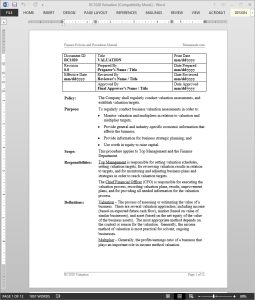 Business Valuation Procedure Activities
Business Valuation Procedure Activities
- Business Valuation Plan
- Business Valuation Steps
- Company Valuation Review
- Reaching Valuation Targets
Business Valuation Procedure Forms
- Business Valuation Plan Template
- Company Valuation Improvement Plan Template
- Valuation History Template



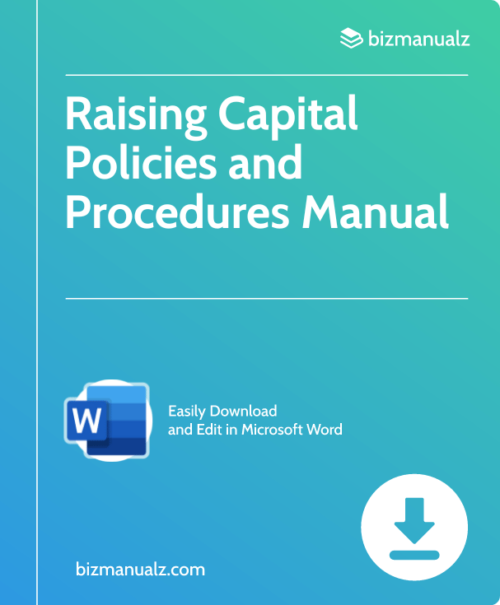
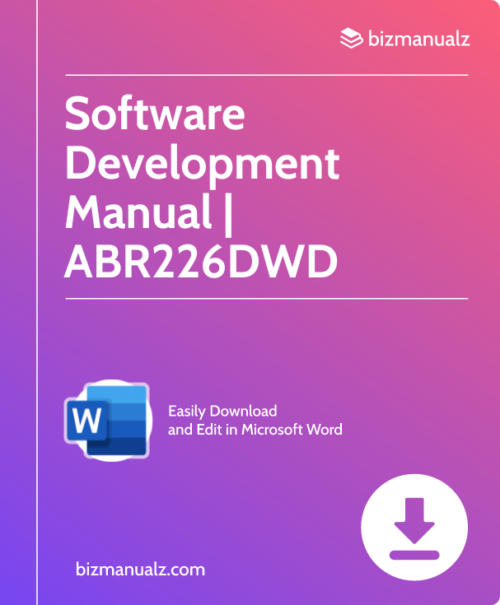

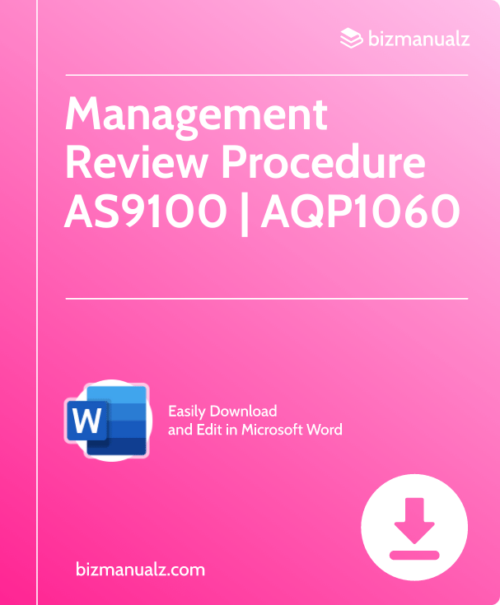
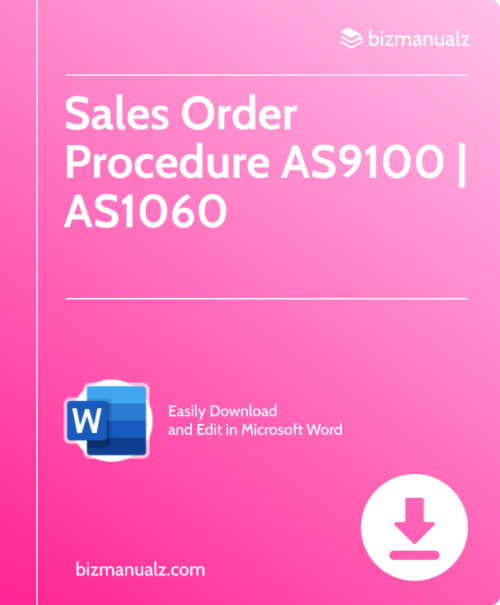













Reviews
There are no reviews yet.